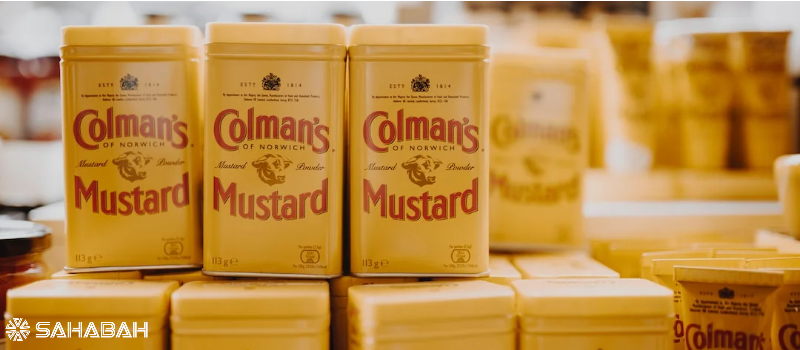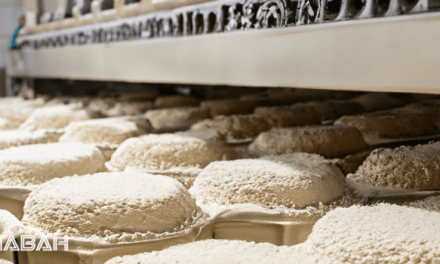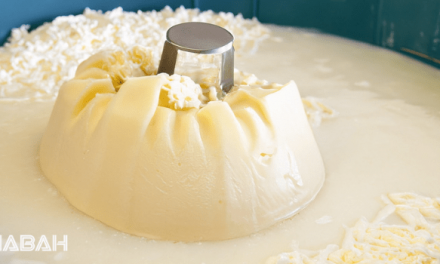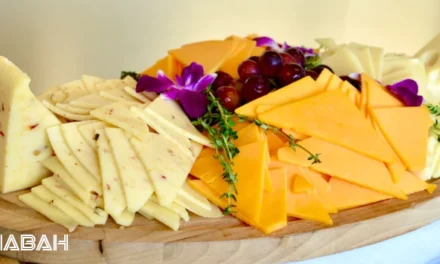For Muslims choosing to follow a halal diet in accordance with teachings from the Qur’an and hadiths, determining if common condiments adhere to Islamic law can be challenging. One of the most frequently asked questions is “Is yellow mustard halal?”
As a versatile accompaniment added to hot dogs, deli sandwiches, pretzels, and various other American foods, yellow mustard’s vague ingredients labeling and potential alcohol content from natural fermentation cause some observant Muslims to question if standard commercial varieties are halal compliant.
This comprehensive guide closely examines how Islamic dietary restrictions and standards of permissibility apply to mustard and its manufacturing processes. We’ll cover:
- Outline of Qur’an halal diet rules and haram forbidden substances
- Common mustard ingredients, production methods, and possible issues
- Controversy over residual alcohol content in mustard from natural brewing
- Verifying halal status of pure mustard seeds and powder
- Tips for identifying halal compliant brands of prepared yellow mustard
- Final determination based on inherent uncertainty around certain mustard varieties and the need for personal interpretation
By including details on popular global mustard producers like French’s, Heinz, and Grey Poupon, as well as perspectives from Islamic scholars, this 2,000+ word article will enable Muslim consumers to make fully informed choices aligned with their halal standards convictions.
Overview of Islamic Halal Dietary Allowances and Restrictions
The Qur’an explicitly prohibits consumption of certain foods and ingredients considered haram (forbidden or proscribed), including:
- Pork and pork byproducts
- Carrion, blood, and meat not slaughtered according to zabiha guidelines
- Intoxicants like alcohol and mind-altering substances
For a food product to be certified halal, permitted substances used must meet the following conditions:
Permitted Food Categories: Plants, dairy, poultry, cattle, seafood Slaughter Method: Zabiha guidelines followed for meat sources Food Quality: Clean, nutritious whole food free from contamination Food Preparation: Avoidance of cross-contamination from prohibited substances Dubious Ingredients: No questionable e-codes, enzymes, flavorings, etc.
However, many common condiments like prepared yellow mustard and mustard-based products don’t carry official halal certification through an accredited agency recognized by the Muslim community. This creates potential confusion around alcohol introduced during fermentation processes, as well as added flavorings, thickeners, and compromised manufacturing equipment.
Yellow Mustard’s Most Common Ingredients and Production Methods
To understand where potential issues arise with finished mustard containing haram substances, we must first outline its most basic ingredients and creation process:
Foundation Ingredients:
- Mustard seed varieties (black, brown, white/yellow)
- Liquid base (vinegar, wine, water, fruit juice)
- Spices and herbs
- Starch thickeners
Therefore, is all commercially produced yellow mustard permissible according to Qur’an? Since mustard is inherently vegan and lacks overt animal byproducts like pork, most considerations come from:
- Alcohol Content: Introduced through wine vinegars, fermentation, or as additive
- Dubious Thickeners & Flavorings: Potentially contain or be cross-contaminated from haram substances
- Shared Production Equipment: Cross-over contamination risks with forbidden foods like pork
Now let’s analyze each factor possibly contributing to prepared mustard’s prohibition under halal diet rules:
Does Mustard Have Natural Alcohol Content from the Fermentation Process?
Like many fermented foods, including staples such as bread and vinegar, trace residual alcohol remains present as a natural byproduct after brewing processes. The same applies to mustard’s distinctive pungent taste derived from fermenting the whole mustard seed or just the crushed outer layer.
Vinegar blends also introduce negligible alcohol content. And wine vinegars take this further. Now there is reasonable debate within the Ummah over what constitutes permissible levels of alcohol when it occurs naturally through essential food processing methods, as in mustard.
Most Islamic scholars would consider the small amounts inherent in properly brewed vinegar and fermented breads tolerable. However, the intentional addition of alcohol-based flavorings would start entering haram territory not meant for halal consumption.
beyond inherent alcohol, we must also consider all the various mustard flavor varieties on the market, which introduce further questionable ingredients:
- Honey mustard – Possible undisclosed sweeteners
- Spicy hot mustard – Hot pepper extracts and natural flavors
- Dijon style mustard – Wine vinegars, enhanced flavorings
Do these added seasonings comply with Qur’anic standards or venture too far outside halal boundaries?
Are Mustard Seeds & Dry Mustard Considered Halal?
In its purest natural form, mustard seeds and derived ground mustard powder would be permissible according to halal guidelines. Three main types of mustard seeds exist:
- Yellow/White Mustard Seeds (Brassica alba now renamed Sinapis alba or alternately Brassica hirta) – The mildest seeds used for American yellow mustard
- Black Mustard Seeds (Brassica nigra) – Also used in yellow mustard blends; imparts more pungent taste
- Brown Indian Mustard Seeds (Brassica juncea) – The most pungent seeds traditionally used in Asian mustards
As long as no questionable thickeners or e-coded additives get introduced, mustard powder directly made from these base seeds would meet Qur’anic standards. The mustard plant also gets used for nutritious mustard greens.
So properly grown mustard seeds free from cross-contamination by haram substances qualify as halal. But this assurance won’t necessarily extend to prepared mustards utilizing vinegar alcohols, compromised equipment, and random thickening agents.
Helpful Tips for Identifying Halal Yellow Mustard Brands
When assessing major commercial yellow mustard producers like French’s, Heinz, Grey Poupon, and others, what signs should observant Muslims look for to verify probable halal status?
1. Check Labels for Alcohol-Free Designations
- “No alcohol” certifications from Islamic agencies provides assurance
- Kosher certifications also indicate lack of alcohol, but other issues may still exist
2. Look for Credible Halal Symbols on Product Packaging:
Clear halal marks such as:

3. Research Brand Manufacturing & Processing Standards:
- Call companies directly to inquire if they accommodate halal requests
- Ask about shared equipment that contacts pork or risky cleaning agents
- Press for alcohol testing lab results down to exact PPM
4. Check Consumer Product Listings By Observant Muslims:
Zabihah.com – User generated halal food recommendations
Leading international mustard producers like French’s may already make special manufacturing runs dedicated to compliant halal standards when informed of enough consumer demand among Muslim communities.
Some brands now even proactively pursue halal verification on certain products as part of inclusive marketing initiatives. These would rank as safest choices for strict adherents to Qur’anic guidelines.
Final Determination – Are Major Mustard Brands Considered Halal Appropriate?
Given lack of alcohol, pure powdered mustard seeds and ground mustard fully align with Qur’an permissibility standards. However, uncertainty introduces itself when we consider mass produced prepared mustards with the following potential issues:
- Alcohol content from vinegar, fermentation, other hidden sources
- Questionable thickeners and anti-caking compounds
- Risk of shared manufacturing equipment with haram substances
- No mainstream halal certification process completed
Does this mean major yellow mustard brands like French’s and Heinz should be considered conclusively not halal? Not necessarily in the view of some Islamic scholars.
While mainstream yellow mustard would pass initial requirements of a halal diet being devoid of blood, carrion, pork and overt intoxicants, conservative Muslims following strictest interpretations should verify the following directly with manufacturers:
- Exact testing results quantifying residual alcohol content, if any
- Disclosure of minor ingredients that may harbor vague e-codes
- Cleaning protocols that prevent cross-contamination with items like pork
- Detailed fermentation and vinegar brewing processes
Uncertainty around these facets introduces potential prohibition depending on each Muslim halal consumer’s standards and scholarly guidance they choose to adhere by. Some denominations permit negligible alcohol when naturally occurring through essential processes like vinegar brewing. Others prohibit any alcohol whatsoever.
Similarly, potential cross-contact of equipment with haram substances ranks as a controversial issue among Islamic schools of thought. Acceptability often comes down to practicality and individual judgment calls.
Making an Informed Determination on Yellow Mustard’s Halal Permissibility
Ultimately, personal choice dictates whether mass distributed yellow mustard satisfies individual halal compliance requirements. Strict traditional methodology calls for caution by avoiding mainstream mustard brands lacking clear halal certification.
But many modern Islamic leaders recognize how negligible traces of alcohol naturally occur through routine food processing methods, and that obsessive micro-avoidance verges on extremism, provided no overt intoxication or dangerous e-code additives exist. Plus contamination of shared equipment ranks as unavoidably impractical to control absolutely in globalized food production systems.
Therefore, each observant Muslim must decide acceptable balance points between practicality, established scholars interpretations, and their personal halal convictions when assessing common condiments like yellow mustard. Seeking out specialty halal-guaranteed brands can provide safest option for those wanting to eliminate any conceivable doubt or violation of Qur’anic principles.
So while standard yellow mustard likely falls into a gray area without definitive ruling, individual choice can minimize potential prohibition conflicts by:
- Verifying manufacturing processes directly with companies whenever possible
- Pursuing certifiably halal specialty mustard brands as alternatives
- Loosening strict personal policies in recognition of inherent practical limitations in global food production networks while still avoiding overt haram ingredients
Adhering to the halal diet according to precise Islamic law requires research, discretion, reasonableness, and personal responsibility in interpreting nuances around permissible foods.
This thorough investigation of mass-produced yellow mustard’s inherent uncertainties explores all considerations necessary to make an informed decision aligned with individual halal standards and convictions on clean conscious eating.
Frequently Asked Questions: Is Mustard Halal?
Mustard is considered halal as long as it does not contain any haram (forbidden) ingredients and is prepared in a way that adheres to Islamic dietary laws.
Is Dijon Mustard Halal?
Dijon mustard can be halal if it is made with halal ingredients and does not contain any alcohol or other haram substances.
Can Honey Mustard be Considered Halal?
Mustard with honey can be halal if the honey used in the product is from a halal source and the overall ingredients and preparation process align with Islamic dietary guidelines.
How can I Determine if a Mustard Product is Halal?
To determine if a mustard product is halal, you should carefully check the ingredients list for any haram elements such as alcohol, non-halal meat, or other forbidden substances. You can also look for halal certification symbols on the packaging.
Is Yellow Mustard Halal?
Yellow mustard can be halal if it is made with permissible ingredients and does not contain any haram components. It’s important to review the ingredients and verify its halal status before consuming it.
Is it Permissible to Consume Mustard Leaves?
Mustard leaves are permissible for consumption and are not prohibited in Islamic dietary laws.
Is Mustard Oil Considered Halal?
Mustard oil is considered halal for use in cooking and consumption as long as it is free from any haram additives or impurities.
Where Can I Find Information on Halal Mustard Products?
You can find information on halal mustard products by checking with halal certification organizations, searching online for halal grocery stores, or reviewing the packaging labels for halal symbols or indications.
Why is it Important to Always Read the Ingredients of Mustard Products?
It is important to always read the ingredients of mustard products to ensure they comply with halal requirements and do not contain any haram substances that would make them impermissible for consumption.
Is Mustard Sauce Considered Halal?
Mustard sauce can be halal as long as it is made with halal ingredients and does not contain any forbidden components such as alcohol or non-halal additives.





